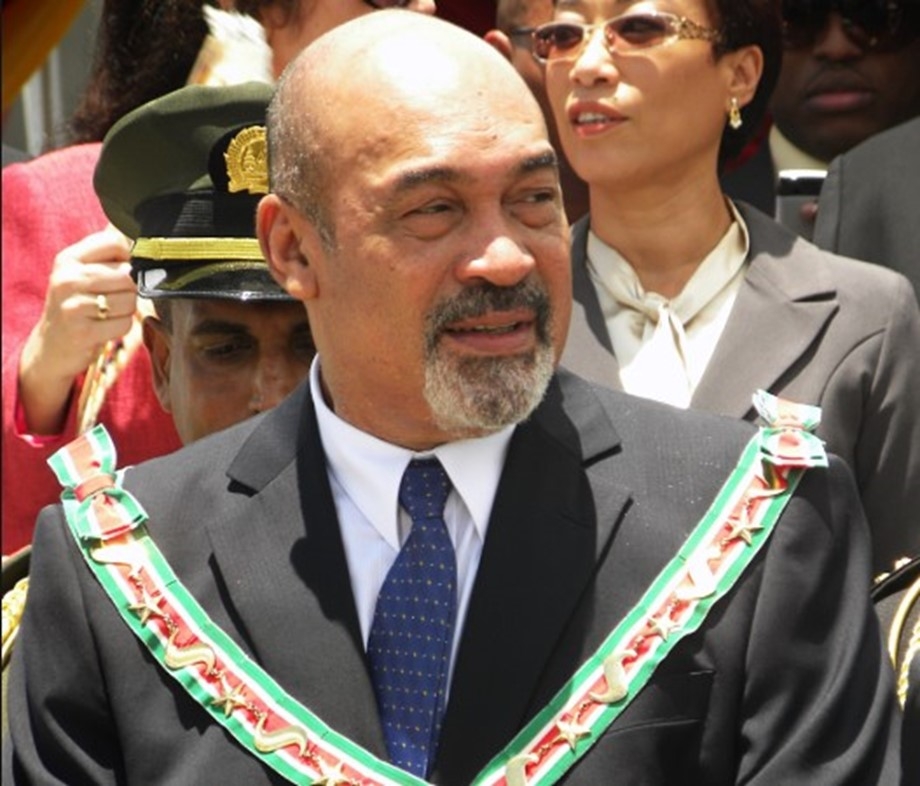Suriname president sentenced to 20 years for 1982 killings

A military court in Suriname sentenced President Desi Bouterse to 20 years in prison Friday over the executions of political opponents when he was the South American country's dictator in the 1980s.
Bouterse, 74, is on a state visit to China and will appeal the judgement when he returns next week, his lawyer Irvin Kanhai said.
A two-time coup leader, two-term president and convicted drugs-trafficker, Bouterse has dominated Suriname's politics since taking power in a 1980 military coup.
Friday's judgement, delivered by a three-member court martial led by Judge Cynthia Valstein-Montor, relates to the executions of 15 regime opponents in December 1982.
The so-called "December killings," in which the regime rounded up and executed 13 civilians and two military officers, have long clouded Bouterse's rule.
Bouterse has always denied involvement, saying the victims had been held for plotting a counter-coup with the help of the CIA, and had been shot while trying to escape.
His evidence, presented by his lawyers, contradicted several witnesses who said he was present during the executions at Fort Zeelandia, the colonial fortress in the capital Paramaribo.
In her ruling, Valstein said Bouterse had played a "crucial" role in the killings, carefully preparing the ground for executions he had the power to prevent.
Military prosecutors opened the case against Bouterse and 24 other suspects in 2007, but the president and political allies several times sought to derail it in Congress.
The trial has gone on so long -- 12 years -- that six of the suspects have died.
Bouterse is due to begin the second leg of his foreign trip, a two-day visit to Cuba, on Monday on his way back from China.
The veteran leader is unlikely to go to jail anytime soon, however. Under Surinamese law, he cannot be arrested until all appeals have been exhausted.
Bouterse seized power as a 34-year-old sergeant major.
He stepped down in 1987 under international pressure, but returned to power in 1990 in a second, bloodless coup. He left office a year later.
In 2010, Bouterse's election as president protected him from an Interpol arrest warrant issued after a Dutch court sentenced him to 11 years in prison for cocaine trafficking.
Dutch-speaking Suriname's people have roots in Asia, Africa, Europe and the Americas.
It gained independence from the Netherlands in 1975. -- AFP
